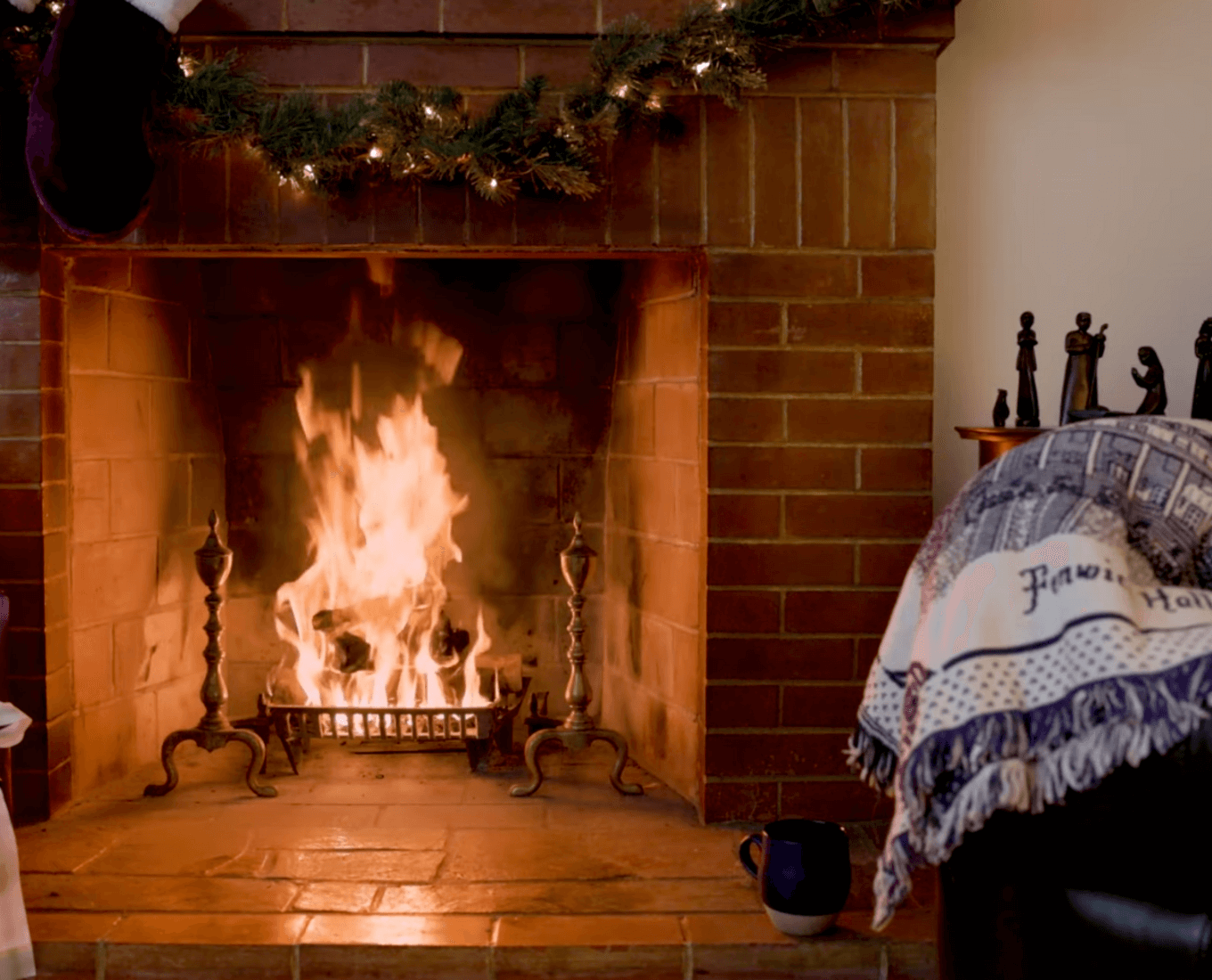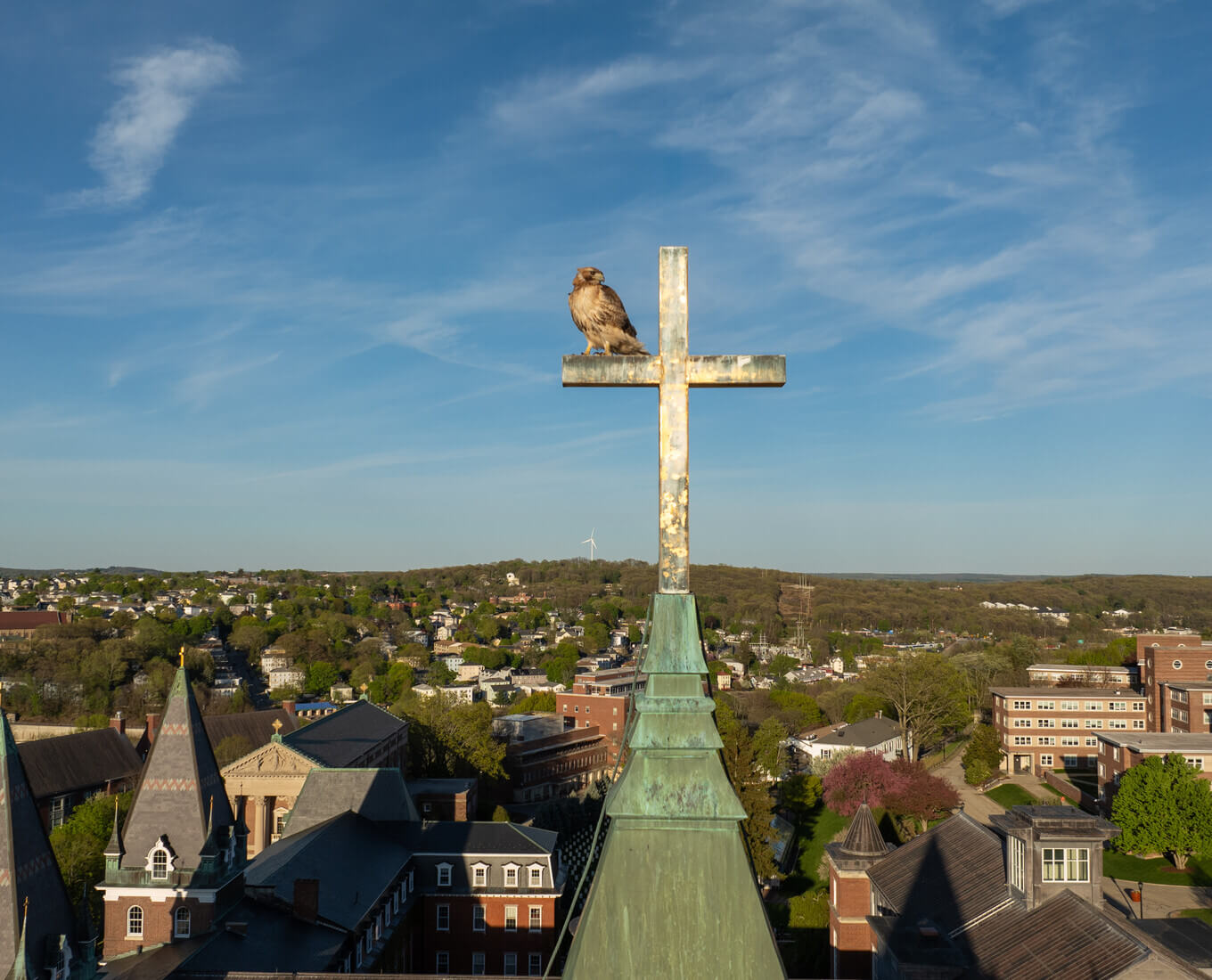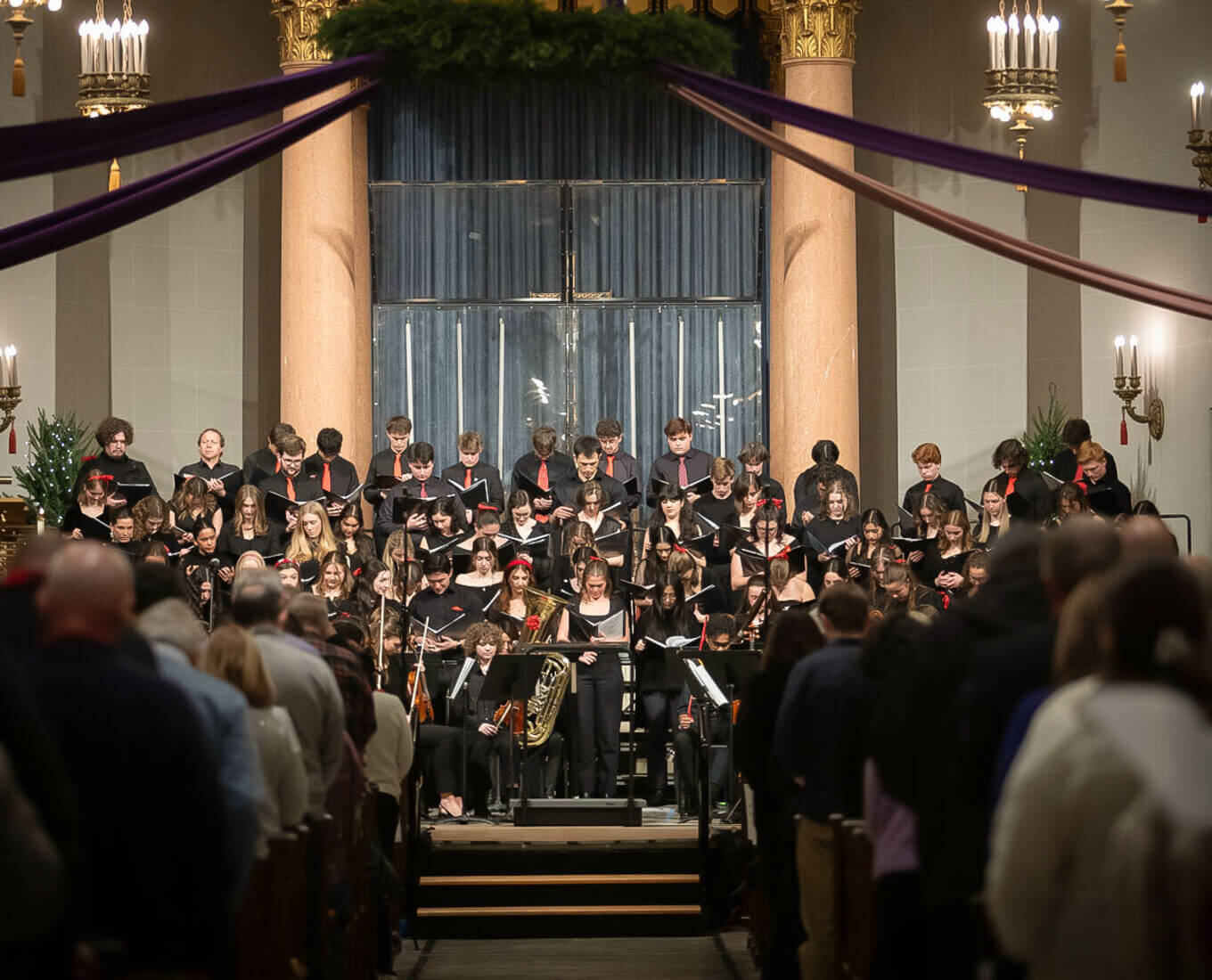When Catherine Pellini ’25 arrived at Holy Cross, she already knew the first campus group she wanted to join: Relationship Peer Educators (RPE) — student volunteers working peer-to-peer to promote healthy relationships and a safe campus community free from sexual violence.
“As part of freshman orientation, we met with an RPE who was a junior, and she was unbelievable," Pellini recalled. “We were covering a very sensitive topic, and she led the group and fielded questions incredibly well.”
After four years on The Hill, she counts being RPE as one of her favorite college experiences. “I have loved being part of this group because we are all so passionate about this work,” said Pellini, a political science major and deaf studies & sign languages minor with a concentration in gender, sexuality, and women’s studies.
RPEs have been a presence at the College for more than three decades. “As someone who's worked in college well-being for over 20 years, that is way ahead of its time,” noted Liz Drexler-Hines, director of Student Wellness Education, who co-advises the RPE group with Jill Kelley, associate director of prevention and education, in the office of Title IX and Equal Opportunity.
The RPE peer-to-peer model offers a powerful force for change, Drexler-Hines said: “There is so much research and evidence that show students are more amenable to receiving information from peers. Research backs that up, time and time again.”
And the need is great: “Statistically, on a national level, 1 in 4 college-aged women and 1 in 6 college-aged men will experience sexual violence, and the rates for trans and non-binary individuals are even higher,” Kelley noted.
Inside education and training
Pellini happened to bring an informed background to her work as an RPE: While in high school, she implemented a healthy relationship curriculum at her school, then worked for the Middlesex district attorney’s office, focusing on domestic violence, during a gap year before enrolling at Holy Cross. (However, RPEs receive extensive training, so prior expertise is not a requirement.)
RPEs follow a comprehensive prevention education plan and undergo more than 40 hours of training. They learn to facilitate discussions, inform about confidential resources and reporting options, and listen and respond to their peers. Programming focuses on sexual assault and misconduct, consent, and working toward a culture of healthy relationships.
Two main RPE responsibilities include participating in Gateways Orientation for incoming students and conducting bystander training for the entire first-year class.
During the fall semester, RPEs co-facilitate more than 60 bystander training sessions to reach every first-year student. “These trainings provide techniques for people who might be witnessing a potentially harmful situation to act and stop that harm from happening by giving them very specific strategies, or the four Ds: direct, delegate, distract and delay,” Kelley explained.
“Bystander training with first-years is my favorite thing to do,” said Brendan Rogers ’25, a sociology major and Italian studies minor who became an RPE as a sophomore after being impressed by the RPEs he met his first year.
“These sessions set the expectations around healthy relationships and establishing boundaries for our incoming college students,” Rogers said. “You team up with a partner RPE and present for two hours. We do a lot of roleplay scenarios, which keeps students engaged because they can see themselves in them. Our mission and a lot of what we talk about is sensitive, so I think often people are scared to talk about it. But once students start talking, they realize it’s important, and normal, to discuss these topics.
“A huge part of what we do as RPEs focuses on romantic or sexual partners, which is incredibly important — but our work extends beyond that,” he continued. “Friendships are also relationships, and students are relating to dormmates, professors, etc. That really attracted me to the position. I’m a sociology major, so when I look around, all I see are relationships.”
Visibe and accessible
The RPEs also aim to be visible and accessible to their peers. “We often have a table in Hogan — we try to have a presence and be faces that people can recognize,” he said.
Through hosting events like Take Back the Night, the Clothesline Project, and Denim Day, RPEs empower survivors and raise broad campus awareness about sexual violence. They also maintain an active social media presence, including on Instagram, where they advertise events and share important resources.


